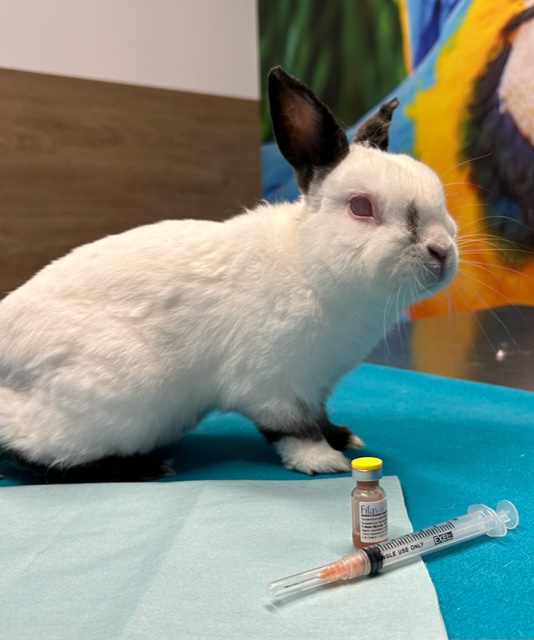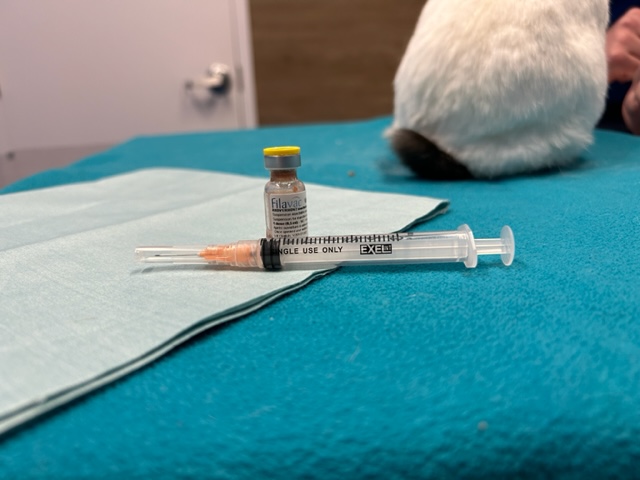

The virus
The Rabbit Hemorrhagic Disease (RHD) is a disease caused by an extremely contagious calicivirus. This disease, exclusive to rabbits in its classic European Type 1 form, also effects hares or wild white-tailed rabbits in its Type 2 form, and has a mortality rate of 90%. In Canada, only the Type 2 Hemorrhagic disease is present. Rabbits affected by the disease will present with fever, weakness, discharge from the eyes, bleeding from the nose, neurological or respiratory signs, liver problems manifested by jaundice, or the animal will simply pass away without any warning signs in the most severe cases. The clinical presentation of Type 1 or Type 2 virus is similar, but the illness may last longer with Type 2.
Transmission
The viral incubation period is 1 to 3 days. The virus can be contracted directly through contact with a sick rabbit, but also indirectly. If the backyard has been contaminated, items such as shoes or the paws of dogs and cats can transport the virus indoors, putting a domestic rabbit at risk. Feeding contaminated grass clippings or other greens from outside to an indoor rabbit can also inadvertently infect an indoor rabbit. Even biting insects could transmit the virus to another rabbit. The virus will survive a relatively long time in the environment (several weeks). The virus has been present in Europe for several years and appeared recently in the United States. Cases were confirmed in the Montreal and Quebec City region in July of 2023. The disease does not cause problems for human beings.
Treatment
Presently, there is no treatment for RHD.
Vaccine
The good news is that there is an excellent and safe vaccine now available in Canada for protection against the two forms of the virus (Type 1 and Type 2). All it takes is one single dose of vaccine injected under the skin and immunity sets in within 7 days. It is necessary to vaccinate annually. The side effects of the vaccine are currently minor compared to the risk of contracting this disease, which is most often fatal.
Our veterinarians are now vaccinating rabbits for the Rabbit Hemorrhagic Disease. Make an appointment now if you have not already done so.
Prevention
Current recommendations are to vaccinate all rabbits, even indoor rabbits, since it is quite easy to contaminate a rabbit by bringing the virus in from outside. Also, from now on you should avoid taking your domestic rabbits outside.
Always quarantine a new rabbit for 14 days when adopting and avoid adoption of rabbits from questionable sources. Ensure the good health of all the rabbits from the place of adoption, avoid adopting from large breeding operations, avoid adoption of rabbits kept outside, avoid rabbit exhibitions or petshows, etc.
If your rabbit has unfortunately died following signs consistent with RHD, consult a veterinarian immediately to confirm the disease. Isolate any rabbit exhibiting symptoms of the disease, or any rabbit that has died of suspicious causes. In Quebec, RHD is classified as a disease requiring notification via the MAPAQ as well as the federal government.
You can call the Ministry of Agriculture, Fisheries and Food of Quebec (MAPAQ) to report the death of a rabbit at 1-844-264-6289.
You may also communicate with the Canadian Food Inspection Agency (CFIA), if needed.
